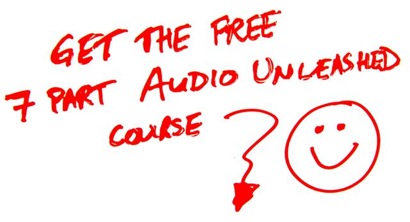Using iTunes to organise your recordings
As an avid producer of podcasts, I have for ages been trying to find a good way of organising my recordings. I needed to keep all my recordings together in a sensible directory structure AND a way of tagging, categorising and searching them.
I was getting to the point of writing some sort of recording content management system when it suddenly struck me - “Hang on, isn’t that what iTunes does?!” Doh!
So I’ve started an experiment. I downloaded iTunes onto the PC where I store all my recordings, interviews etc. Then I brought each recording into iTunes (File -> Add file to library). When you do this at least 5 cool things happen:-
- The sound file gets copied into a sensible, non changing directory structure maintained by iTunes (ensure you have Edit -> Preferences -> Advanced tab, Keep iTunes Music Folder organised and Copy files to iTunes Music folder when adding to library ticked);
- You can now edit the information associated with each recording - right click on the recording and select Get Info. You can edit the title, year, and add a description among other things.
- You can group clumps of recording together by assigning them an “album” - for example, if you were putting together a podcast series about Alien Abductions, you could put all you interviews and other recordings into an album called “Alien Abduction Recordings”.
- You can use the search box in iTunes to find stuff - invaluable when you recording library gets really big. Top tip - put tags in the Composer field when you edit the info, this field is searched by the iTunes search box. So for example I did a recording the other day of a guy called Jim on the seafront at the Al Fresco cafe, my tags were “jim andy beach seafront al fresco”.
- Another way of “tagging” is to use playlists. Make playlist of your top dozen or so “tags” and drag the relevant recordings into them - cool.
I’ll keep you posted on how my iTunes experiment is going.
Technorati Tags: itunes, mp3, recordings, podcasting, organising, tagging
1e4a
If you found this article useful and would like to donate please do so here.


